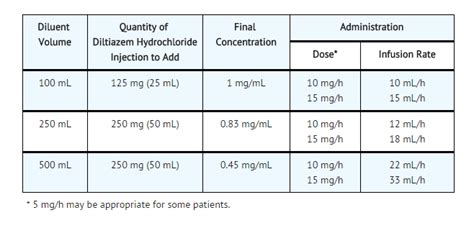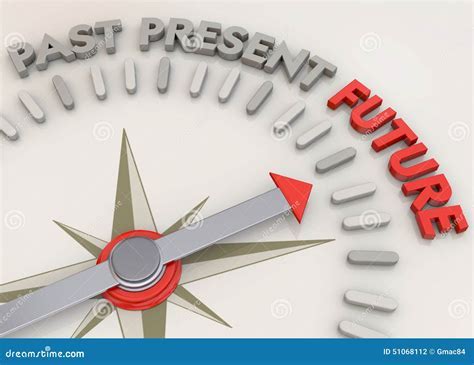Intro
Diltiazems side effects, including dizziness & headache, are common. Learn about its uses, interactions, and managing adverse effects with calcium channel blockers.
Diltiazem is a medication that belongs to a class of drugs known as calcium channel blockers. It is primarily used to treat high blood pressure, control angina, and certain heart rhythm disorders. By relaxing the muscles of the heart and blood vessels, diltiazem improves blood flow and reduces the heart's workload. However, like all medications, diltiazem can cause side effects, some of which can be severe. Understanding the potential side effects of diltiazem is crucial for patients to manage their condition effectively and minimize the risk of adverse reactions.
The importance of being aware of the side effects of diltiazem cannot be overstated. While the medication is effective in managing cardiovascular conditions, its side effects can range from mild and temporary to severe and potentially life-threatening. Patients taking diltiazem should be vigilant about monitoring their body's response to the medication and report any unusual symptoms to their healthcare provider promptly. This proactive approach can help in identifying and managing side effects early, ensuring the safe and effective use of diltiazem.
Moreover, the management of diltiazem's side effects often requires a collaborative effort between the patient and their healthcare team. By understanding the potential side effects and maintaining open communication, patients can work closely with their doctors to adjust their treatment plan as needed. This might involve changing the dosage, switching to a different medication, or implementing lifestyle changes to mitigate the impact of side effects. The goal is to maximize the benefits of diltiazem while minimizing its adverse effects, thereby improving the overall quality of life for patients with cardiovascular conditions.
Diltiazem Mechanism of Action

Benefits of Diltiazem
The benefits of diltiazem are multifaceted, making it a valuable medication for the management of various cardiovascular conditions. Some of the key benefits include: - **Improved Blood Flow:** By dilating blood vessels, diltiazem improves blood flow and reduces blood pressure, which can help in preventing complications associated with hypertension. - **Angina Relief:** For patients with angina, diltiazem can significantly reduce the frequency and severity of angina attacks by improving blood flow to the heart muscle. - **Heart Rate Control:** Diltiazem's ability to slow the heart rate makes it useful in managing certain types of arrhythmias, promoting a more regular and efficient heart rhythm. - **Reduced Cardiovascular Risk:** By lowering blood pressure and reducing the heart's workload, diltiazem can help in reducing the risk of heart attacks, strokes, and other cardiovascular events.<h2/Common Side Effects of Diltiazem

Severe Side Effects and Warnings
While less common, diltiazem can cause severe side effects that require immediate medical attention. These include: - **Allergic Reactions:** Rarely, patients may experience severe allergic reactions, including anaphylaxis, which is a medical emergency. - **Heart Block:** Diltiazem can exacerbate or trigger heart block in susceptible individuals, leading to serious heart rhythm disturbances. - **Bradycardia:** Significant slowing of the heart rate can lead to inadequate blood flow to vital organs. - **Hypotension:** Severe drops in blood pressure can cause dizziness, fainting, and inadequate organ perfusion.Interactions with Other Medications

Precautions and Contraindications
Diltiazem is contraindicated in certain conditions, and precautions should be taken in others. Key considerations include: - **Pregnancy and Breastfeeding:** Diltiazem should be used with caution in pregnant or breastfeeding women, as its effects on the fetus or infant are not well understood. - **Sick Sinus Syndrome:** Patients with sick sinus syndrome may experience severe bradycardia or heart block. - **Second- or Third-degree AV Block:** Unless a pacemaker is in place, diltiazem is contraindicated in these conditions due to the risk of complete heart block. - **Hypotension:** Diltiazem should be used cautiously in patients with low blood pressure, as it can cause further decreases in blood pressure.Diltiazem Dosage and Administration

Monitoring and Follow-Up
Regular monitoring and follow-up are essential for patients taking diltiazem. This includes: - **Blood Pressure Checks:** Regular monitoring of blood pressure to assess the effectiveness of the medication and to adjust the dosage as needed. - **Electrocardiogram (ECG):** For patients with heart rhythm disorders, regular ECGs can help in assessing the medication's effects on heart rate and rhythm. - **Liver Function Tests:** As diltiazem is metabolized by the liver, monitoring liver function, especially in patients with pre-existing liver conditions, is important.Alternative Treatments

Patient Education and Support
Patient education plays a critical role in the effective management of cardiovascular conditions with diltiazem. Patients should be informed about: - **Medication Adherence:** The importance of taking the medication as prescribed and not stopping it without consulting a healthcare provider. - **Side Effect Monitoring:** Patients should be aware of the potential side effects and know when to seek medical help. - **Lifestyle Changes:** Educating patients on the benefits of lifestyle modifications and providing support to implement these changes can significantly enhance the effectiveness of treatment.Conclusion and Future Directions

The future of cardiovascular treatment is likely to involve a more personalized approach, with medications like diltiazem being tailored to the individual needs of patients based on genetic profiles, medical history, and lifestyle factors. This personalized medicine approach could lead to more effective treatment strategies with fewer side effects, ultimately improving patient outcomes and quality of life.
A Final Note on Patient Engagement
Engaging with the healthcare community, asking questions, and seeking support are crucial steps for patients taking diltiazem. By being proactive and informed, individuals can better manage their condition, reduce the risk of side effects, and improve their overall well-being. Whether through support groups, online forums, or direct communication with healthcare providers, patient engagement is a key component of successful treatment with diltiazem.What is the primary use of diltiazem?
+Diltiazem is primarily used to treat high blood pressure, control angina, and certain heart rhythm disorders.
Can diltiazem cause severe side effects?
+Yes, while rare, diltiazem can cause severe side effects, including allergic reactions, heart block, bradycardia, and hypotension, which require immediate medical attention.
How should I take diltiazem?
+Diltiazem should be taken exactly as prescribed by your healthcare provider. Do not stop taking the medication without consulting your doctor, as sudden withdrawal can lead to rebound effects.
Can I take diltiazem with other medications?
+Diltiazem can interact with several medications. It is essential to inform your healthcare provider about all the medications you are taking to avoid potential interactions.
What lifestyle changes can I make to enhance the effectiveness of diltiazem?
+Lifestyle modifications, including a healthy diet, regular exercise, smoking cessation, and stress management, can significantly enhance the effectiveness of diltiazem and improve overall cardiovascular health.
